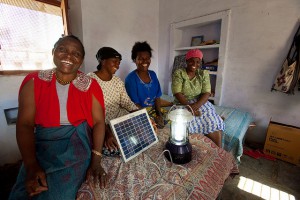Sustainable financing

Ensuring the financial sustainability of social protection schemes and systems is key to realizing the right to social security. Financial sustainability is often discussed in the context of demographic trends (increased longevity, declining fertility rates and increasing mobility), yet a comprehensive assessment also needs to take into account structural changes in the labour market (labour force participation, structure of employment, levels of informality and casual work) and the changing needs of the population.
At the scheme level, sustainable financing requires transparent, accountable and sound financial management, with clear rules and regulations as well as sound record keeping in line with international accounting and actuarial standards.
Based on the principles of good governance, set out in ILO Convention No. 102 (Art. 71), the following principles have been identified by the ILO Committee of Experts on the Application of Conventions and Recommendations (2011, pp. 180-199):
- Social security financing should be sustainable, based on the principle of sustainable financing, and under the general responsibility of the State.
- Social security funds should be protected to the best extent possible against mismanagement, cyclical fluctuations and market failures.
- The purchasing power of benefits in payment should be maintained by adjusting them to the costs of living.
- Financial deficits in relation to social security should be obviated in the long term, through the establishment by the State of a funding plan to assure such solvency.
While the financial governance structures of social protection systems vary from one country to another, the application of these principles provides a yardstick for ensuring sustainable and equitable financing.
Photo credit: “Participants from Liberia and Malawi at the end of their six-month solar engineering course” by UN Women (CCBY 2.0 via Flickr).
Financing the end of extreme poverty
In 2015, leaders of all countries committed to “eradicate extreme poverty for all people everywhere” by 2030. In the past 25 years, the world has managed to halve the number of people living in extreme poverty. Yet despite this progress, at least 400 million people will still be living on less than $1.90 a day by […]
Uganda Social Protection Financing Options Programme (Final Report)
Social protection is globally recognized as a critical component of national development strategies and key to achieving inclusive pro poor, equitable development. To realize Uganda’s social protection goals the Ministry of Gender, Labour and Social Development in partnership with the Department for International Development (DFID), Irish Aid and UNICEF, is implementing the Expanding Social Protection […]
JICA Thematic Guide to Social Protection
The Japan International Cooperation Agency (JICA) Thematic Guideline is a reference document targeting the wide ranging internal and external stakeholders in social protection. The purpose of the Guideline is to provide basic information and knowledge about social protection such as an overview of social protection around the world, trends in international assistance, effective approaches and […]
Optimal financing and self-adjusting mechanisms for sustainable retirement systems
This brief paper first recapitulates the main pension financing options and reviews the theoretical pros and cons of pension funding seeking for a logical synthesis. In the second part of the paper, a broad review of the historical experience of pension reforms since the 1980’s is presented as well as in the context of the […]
Employment and social protection in the new demographic context
The changing age structure of the population has potentially significant implications for economic development, labour markets and well-being in different development contexts. It raises issues of possible shortages in labour supply and skills, productivity and innovation and the provision of adequate social protection and other services for an increasingly ageing population. The report analyses these […]
Social Budgeting
The first part of the book provides guidance for designing a social accounting system. The second part shows how the relationships between the economy and the social protection system can be translated into a quantitative model which permits projections and simulations to be carried out. Includes two concrete country applications. Link to this page
Report on austerity measures and economic and social rights
The present report, submitted pursuant to General Assembly resolution 48/141, considers the impact of austerity measures on economic, social and cultural rights, in particular on the right to work and the right to social security, with a specific focus on women, migrants and older persons. It also lays out the criteria States should apply when […]

